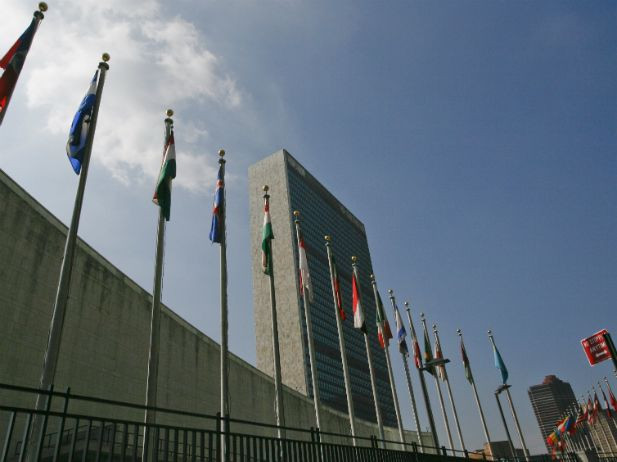NSA Bugged United Nations Headquarters In New York, Der Spiegel Reports

The NSA’s multitude of surveillance targets include the United Nations headquarters in New York, German news magazine Der Spiegel reported Sunday (story in German here).
If confirmed, the bugging violates the long-standing host agreement between the U.S. and the U.N., as Deutsche Welle notes.
Der Spiegel says it has analyzed top-secret documents leaked by Edward Snowden that show that, last summer, the U.S. National Security Agency gained access to the video conferencing system used at the U.N. headquarters on the East River, leading to "a dramatic improvement of data on video conferencing and our ability to decode that data," according to the document.
The NSA also allegedly caught Chinese intelligence spying on the U.N. and started analyzing the material China was wiretapping.
"The data traffic gives us internal video teleconferences of the United Nations (yay!)," Der Spiegel quoted one document as saying, according to Reuters, adding that within three weeks the number of decoded communications rose to 458 from 12.
The alleged spying activities are illegal. The U.S., as host country, has a long-standing agreement stipulating that it refrain from covert operations with regards to the U.N.'s activities.
Der Spiegel also reports that the documents it has analyzed show that the NSA spied on the European Union even after its move to its new U.N. mission last September. The article says the NSA's nickname for the EU mission was "apalachee," while the EU Embassy in Washington was dubbed "magothy."
The NSA used traditional bugging devices to spy on U.N. activities, says the report. It also allegedly copied hard drives and infiltrated computer networks in Washington.
Der Spiegel also says that the NSA operated a global monitoring network called "Special Collection Service" in more than 80 embassies and consulates, often without the host country's knowledge.
A week ago the British government, collaborating with the U.S. in the intelligence field, detained David Miranda, the Brazilian partner of Glenn Greenwald, the U.S. journalist working for London's Guardian newspaper who has led coverage of Snowden's leaks. British police said documents seized from Miranda were "highly sensitive" and could put lives at risk if disclosed.
The Guardian last week destroyed computer equipment containing Snowden files after it was threatened with possible legal action by senior British government advisers.
In an open letter to British Prime Minister David Cameron published on Sunday, editors of leading Scandinavian newspapers said Miranda's detention and moves against the Guardian were "undermining the position of the free press throughout the world." "(We are) deeply concerned that a stout defender of democracy and free debate such as the United Kingdom uses anti-terror legislation in order to legalize what amounts to harassment of both the paper and individuals associated with it," said the letter from Sweden's Dagens Nyheter, Finland's Helsingin Sanomat, Denmark's Politiken and Norway's Aftenposten.
© Copyright IBTimes 2025. All rights reserved.





















